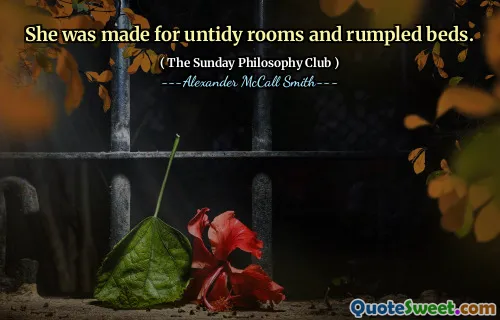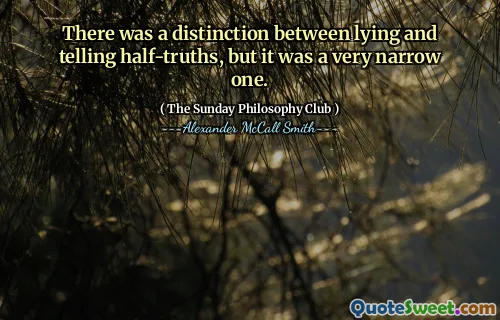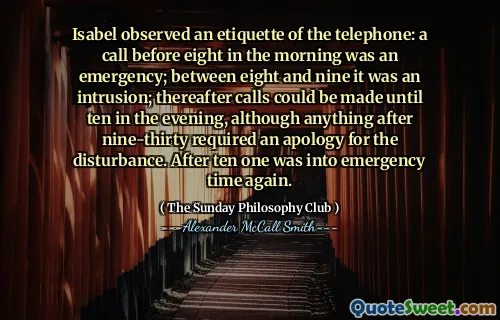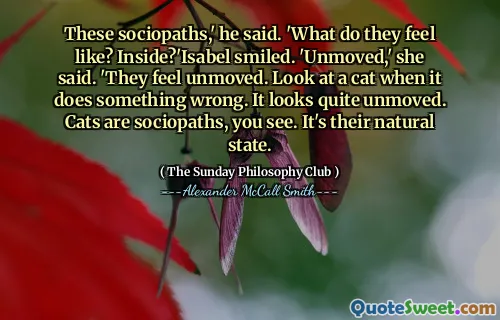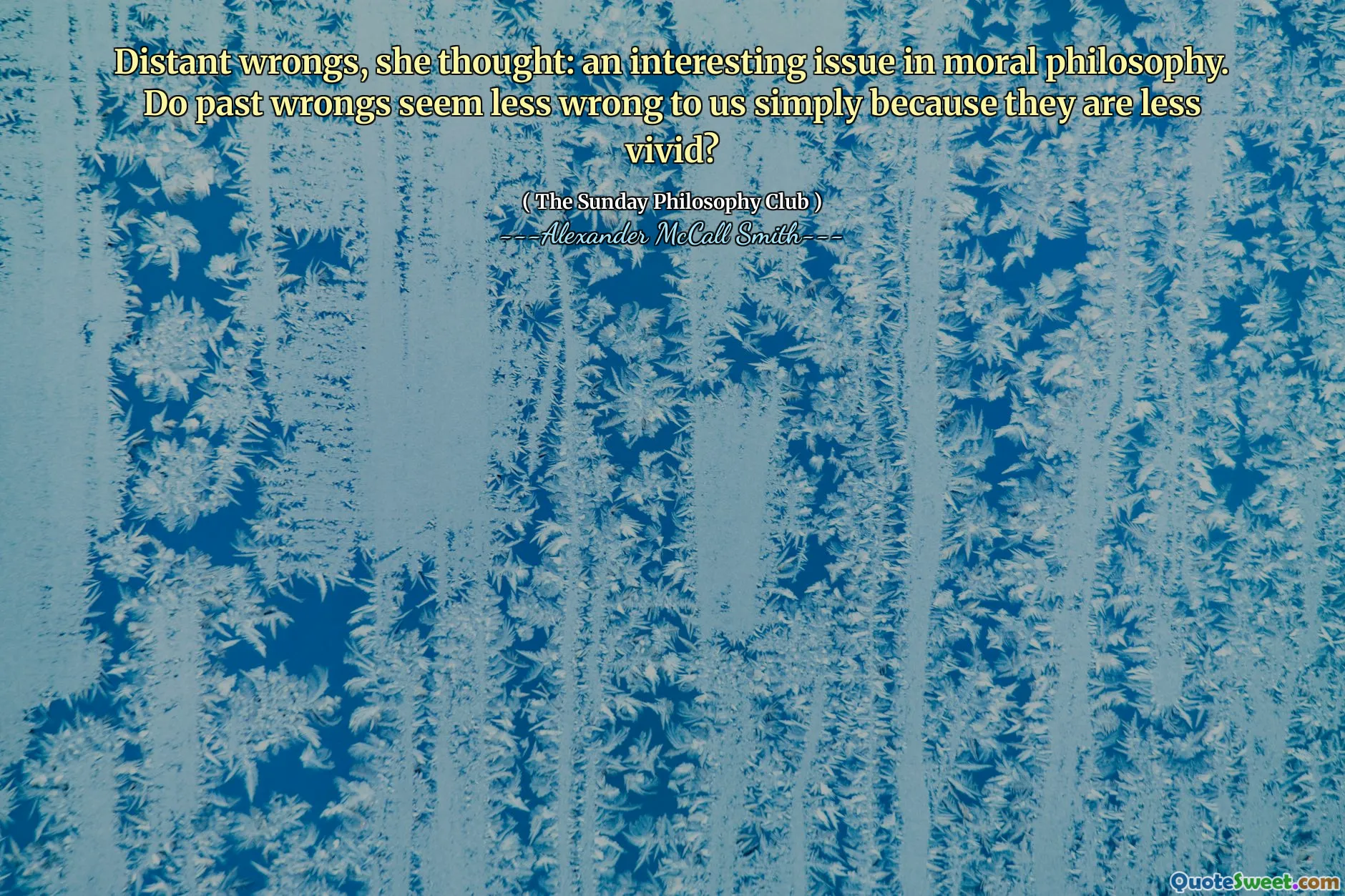
Distant wrongs, she thought: an interesting issue in moral philosophy. Do past wrongs seem less wrong to us simply because they are less vivid?
In "The Sunday Philosophy Club" by Alexander McCall Smith, a character reflects on the nature of past wrongs and their impact on our moral judgment. She contemplates whether the distance in time from these wrongs diminishes their severity in our eyes, raising important questions about how we perceive morality. This introspection illustrates how our understanding of ethical dilemmas can be influenced by the vividness of our memories. The idea suggests that the emotional intensity associated with a wrong can fade over time, leading to a different moral evaluation. This perspective invites readers to consider how context and memory shape our moral philosophy, highlighting the complexities of judging past actions. The character's thoughts serve as a starting point for deeper discussions about ethics and the significance of historical events in shaping our current moral landscape.
In "The Sunday Philosophy Club" by Alexander McCall Smith, a character reflects on the nature of past wrongs and their impact on our moral judgment. She contemplates whether the distance in time from these wrongs diminishes their severity in our eyes, raising important questions about how we perceive morality. This introspection illustrates how our understanding of ethical dilemmas can be influenced by the vividness of our memories.
The idea suggests that the emotional intensity associated with a wrong can fade over time, leading to a different moral evaluation. This perspective invites readers to consider how context and memory shape our moral philosophy, highlighting the complexities of judging past actions. The character's thoughts serve as a starting point for deeper discussions about ethics and the significance of historical events in shaping our current moral landscape.
